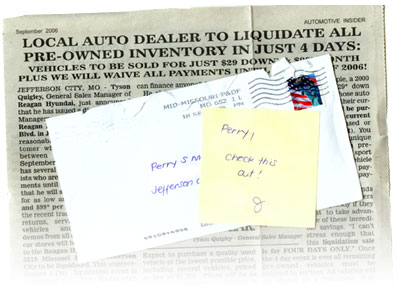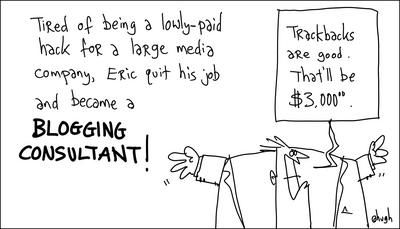Roger brought back a copy of the affiliation contract for The Davey Ramsey Show (financial advice?) from the recent meeting of the National Association of Broadcasters. They shove all kinds of promotional stuff under the door to your hotel room every night and this was in Roger’s pile one morning. I’m not familiar with the program but I love the contract. One page (front only). I spent my youth (okay, my middle years) trying to get people to sign affiliation contracts with our networks.
I did my best to keep them simple and understandable. But our attorneys never let me go this far. Here’s the full contract (PDF) and here are a few paragraphs:
Thank you for deciding to include The Dave Ramsey Show as part of your station lineup. Are you looking for a big, detailed contract? They are a pain and quite frankly, we don’t feel like dealing with them. Below you will find afew points that will guide our relationship. Please initial each one and return the contract via fax to 615-372-0573 (confidentiality assured).
1. You like us and we like you and therefore are agreeing to work together. You are going to start airing the program on station (station info)
3. Now that you have decided to carry The Dave Ramsey Show we will not be available for another station in your market. Don’t know why we have to state that we are not interested in cutting our legs out from under ourselves, but I guess this market exclusivity thing is a big deal.
5. Let’s try this. The Dave Ramsey Show should be carried LIVE. We think it is a mistake if it is not aired live. However, we understand that some stations are not able to make this happen. For now that is acceptable. All we want you to do is let us know that after we start winning for your station, that you will consider us for a live slot. You are not guaranteeing us this slot, you are not promising this slot, you are simply letting us know that you will consider it. Come on, is that too much to ask? We should be live anyway.
I don’t know how good this is from a legal standpoint, but it’s good marketing or PR or something. And in my experience, most contracts with radio stations weren’t worth much. My hat is off to whomever wrote this agreement.


